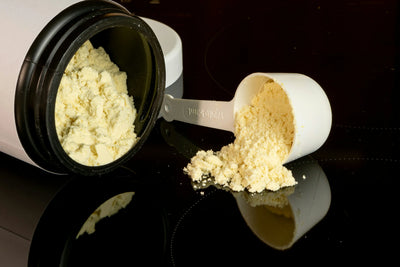Introduction
For every dog lover, the health of our dogs always touches our hearts. They are not only our faithful companion, but also a member of the family. In order for dogs to live a healthier and happier life, we need to pay attention to their nutritional needs, and vitamin K is one of the “health codes” that cannot be ignored. This seemingly insignificant nutrient plays a vital role in your dog's body.
Vitamin K for Dogs
From helping with blood clotting to protecting bone health, Vitamin K silently protects your dog's life. Today, we're going to talk in-depth about what Vitamin K means for dogs and how to scientifically supplement to ensure they're energized each and every day.
Vitamin K is not as often mentioned as protein or calcium, but its role should not be underestimated. It's like a behind-the-scenes hero, quietly supporting your dog's bodily functions. Here are the three core functions that vitamin K performs in your dog's body:
Blood clotting is the body's first line of defense against wounds, and vitamin K is a key enabler of this process. It is involved in the synthesis of clotting factors, which ensures that blood can clot quickly in the event of an injury, preventing blood loss. Imagine if your dog accidentally cuts his skin or suffers a minor injury while playing, the presence of Vitamin K acts as an efficient first responder, quickly stopping the bleeding and protecting your dog from danger.

As dogs age, bone health becomes an area that requires special attention. Vitamin K reduces the risk of osteoporosis in older dogs by regulating calcium deposition in the bones and helping to maintain bone density. For active pups, strong bones also make them more agile and safe when running and jumping.
Vitamin K also has antioxidant properties that fight cell damage from free radicals. This acts as a protective coating for your dog's body, helping them to ward off potential threats from the outside environment, keep their cells energized, and slow down the aging process.
Why are dogs deficient in vitamin K?
Despite the fact that vitamin K is so important for dogs, there are certain situations in which they may be at risk of becoming deficient. Here are some common “culprits”:
This is the most common and dangerous cause of vitamin K deficiency in dogs. Anticoagulant rodenticides interfere with the liver's recycling of vitamin K, disrupting the blood clotting mechanism and causing severe internal bleeding. If a dog accidentally ingests such poisons, the consequences can be fatal, so owners need to be extra vigilant about the safety of their homes and outdoor environments.
The liver is an important organ for vitamin K metabolism and storage. If a dog suffers from liver disease such as intrahepatic cholestasis, the normal function of vitamin K will be affected, which in turn will lead to deficiency.
Vitamin K is a fat-soluble vitamin and needs to be absorbed through the bile to assist absorption. If your dog's bile duct is obstructed, the efficiency of vitamin K absorption will be greatly reduced, resulting in insufficient reserves in the body.
Certain intestinal disorders, such as chronic diarrhea or inflammatory bowel disease, can interfere with vitamin K absorption. In addition, the intestinal microbiota is involved in vitamin K synthesis, and deficiency problems may be further exacerbated if there is an imbalance in the flora.
While antibiotics can treat infections, long-term use may disrupt the beneficial flora in the gut and interfere with the natural synthesis of vitamin K. This is a reminder that we must strictly follow our veterinarian's recommendations when administering antibiotics to our dogs.
Signs of Vitamin K Deficiency
When a dog is deficient in vitamin K, the body will send out “distress signals” to the owner through a number of symptoms. The following are some of the signs that require special attention:
Abnormal Bleeding: This is the most obvious sign, and may manifest as bleeding from the skin or mucous membranes, bleeding gums, nosebleeds, or even blood in the urine or feces. These signs often indicate that something is wrong with your dog's blood clotting.
Frequent bruising: If your dog develops large bruises at the slightest bump, it may be a sign of weak blood vessels due to vitamin K deficiency.
Bone problems: Chronic deficiencies may affect bone development, which can lead to stunted growth, especially in puppies, or an increased risk of fractures in older dogs.
If you notice any of these symptoms in your dog, especially bleeding or bruising that appears suddenly, don't delay and take him to the vet immediately for a checkup. Early detection and treatment can greatly reduce the risk.
How Can I Scientifically Supplement My Vitamin K?
The good news is that vitamin K deficiency can be prevented and corrected. Here are the two main types of supplementation that owners can choose from depending on their dog's situation:
Natural foods are the ideal way to supplement vitamin K. Many common ingredients are rich in vitamin K, such as green leafy vegetables like broccoli, kale, and spinach, and animal offal like beef liver. Not only do these foods provide vitamin K, but they are also rich in other nutrients that can benefit your dog's overall health. However, it's best to consult your veterinarian before feeding them to confirm the appropriate portion size and cooking style for your dog to avoid digestive problems.
If your dog is already showing signs of vitamin K deficiency, or has unfortunately accidentally ingested rodenticides, medication supplementation becomes a priority. Veterinarians usually treat with vitamin K1 (also known as phenanthrenequinone). In acute cases, this may be done first by subcutaneous injection to quickly stop the bleeding, and then switched to oral medication once the situation is stabilized. The entire course of treatment needs to follow your veterinarian's instructions to the letter, ensuring that the dosage is precise and the course of treatment is complete.
Instead of waiting until your dog develops a problem and then remedying it, it is better to take more precautions in your daily life. Here are some practical suggestions:
Safety first: inspect your home and your dog's activity areas regularly to remove any rodenticides or other poisons that may be present.
Balanced diet: Provide your dog with a nutritious and complete diet, adding ingredients rich in vitamin K if necessary.
Regular checkups: Take your dog for regular checkups to detect liver or intestinal problems before they occur.
Be careful with medication: Avoid giving your dog antibiotics or other drugs that may affect vitamin K metabolism.
Vitamin K may be small, but it can play a big role in your dog's life. It is not only a safeguard for blood clotting, but also a cornerstone of bone health and cellular protection. As owners, our responsibility is not only to provide our dogs with a warm home and tasty food, but also to pay attention to their nutritional needs and use scientific methods to protect their health. When you see your dog running happily on the grass with his tail wagging like a small fan, that moment of happiness is the best reward for our dedication.
Vitamin K Dosage for Dogs
For healthy dogs, daily supplementation with vitamin K is primarily intended to prevent minor deficiencies due to dietary deficiencies or other causes. Veterinarians usually recommend a daily recommended intake of 0.01-0.1 mg per kilogram of body weight. This dosage is like adding a layer of “invisible insurance” to your dog's health, meeting their daily needs without overdoing it.
For example, a 10 kilogram dog needs about 0.1-1 mg of vitamin K per day. This can be achieved through a well-balanced diet, such as feeding ingredients rich in vitamin K, such as broccoli, spinach or beef liver. If your dog's daily diet is already rich enough, there is usually no need for additional supplements. However, if you're not sure if your dog's nutritional intake is adequate, you may want to consult with your veterinarian to tailor a diet plan that's right for him.
Emergencies: Precise Dosage for Vitamin K Deficiency
Sometimes, your dog may suffer from a severe vitamin K deficiency or even dangerous internal bleeding due to unforeseen circumstances, such as accidentally ingesting an anticoagulant rodenticide or suffering from liver disease. This is where scientific and timely treatment becomes especially important. The following dosage regimens are commonly used by veterinarians in the treatment of vitamin K deficiency:
1. Subcutaneous Injection
Initial Dose: For acute vitamin K deficiency (e.g., accidental ingestion of rodenticide), your veterinarian will usually give your dog a subcutaneous injection of 2.2 mg/kg of body weight of vitamin K1, which acts as an “emergency brake” on the body and quickly restores the blood's ability to clot.
Follow-up dosing: After the initial injection, 1.1 mg/kg of body weight of vitamin K1 should be injected every 12 hours until the bleeding symptoms (e.g. bleeding gums, hematuria, etc.) have subsided significantly. This phase may last several days depending on the dog's recovery.
2. Oral Maintenance
Once the bleeding is under control, the treatment enters a “consolidation phase”. At this point, the dog is usually switched to oral vitamin K1 at a dose of 1.1 mg per kg of body weight every 12 hours.
In the case of second-generation, long-acting anticoagulant rodenticides (which are more toxic and have a longer duration of action), the treatment period may be longer. The oral dose of vitamin K1 is maintained at 1.1 mg per kg of body weight every 12 hours for 2 weeks. The dose is then halved every 2 weeks for a total treatment period of usually 6 weeks. This process requires patience and cooperation from the owner to ensure that the dog takes the medication on time in order to completely clear the effects of the poison.
3. Vitamin K3 Injection
In certain bleeding disorders caused by vitamin K deficiency, veterinarians may opt for intramuscular injections of vitamin K3 (menaquinone) at a dose of 10-30 mg per dose, depending on the dog's weight and condition. However, due to the high potential toxicity of vitamin K3, this approach is usually only used in specific cases and must be administered by a specialized veterinarian.

Special Scenarios: Preoperative Prevention and Long-term Supplementation
In addition to treating deficiencies, vitamin K can come in handy in a number of special situations:
1. Pre-operative Prevention
If a dog is about to undergo surgery, especially one involving the liver or biliary tract, your veterinarian may recommend vitamin K supplementation in advance to reduce the risk of intra- or post-operative bleeding. A common dose is 1.1 mg per kilogram of body weight, administered subcutaneously, every 12 hours, starting 1-2 days before surgery. This small action can greatly enhance the safety of the surgery and give both the owner and the dog more peace of mind.
2. Chewable Tablets
Chewable vitamin K1 tablets are a good choice for dogs that require long-term vitamin K supplementation, such as those with chronic liver disease or intestinal absorption problems. The recommended dose is 2.5-5.0 mg per kilogram of body weight once a day for up to 3 weeks as needed. This is simple to administer and more acceptable to dogs, but the dosage still needs to be adjusted under veterinary supervision.
Precautions
Although vitamin K is vital to your dog's health, there are a few things to be extra careful about when supplementing:
1. Individual Differences Should Not Be Ignored
Every dog's vitamin K needs are different. A larger Golden and a petite Chihuahua, an active puppy and a laid-back senior dog may have very different absorption capacities and metabolisms. Therefore, before supplementing with vitamin K, it is best to consult with your veterinarian and let the professionals develop a dosage regimen based on your dog's specific situation.
2. Excessive Dosage Is Risky
Vitamins K1 and K2 have low toxicity and even a slight overdose usually does not cause serious harm to your dog. But vitamin K3 (menaquinone) is a different story - overdose can trigger liver damage or oxidative stress, and in severe cases can even be life-threatening. Therefore, any treatment involving vitamin K3 must strictly follow your veterinarian's instructions and never increase the dose without authorization.
3. Observation and Communication are Key
During the process of vitamin K supplementation, owners need to closely observe the state of their dogs. If abnormalities are detected, such as loss of appetite, depression or bleeding symptoms that do not improve, communicate with your veterinarian in a timely manner, and adjustments to the treatment plan may be necessary.
Although the dosage of vitamin K seems to be just a cold number, it carries behind it our infinite care for the health of our dogs. Whether it's daily micro-supplementation or precise treatment in an emergency, a scientific approach can keep your dog out of danger and blossom with vigor. As owners, what we can do is not only to give them a warm home, but also to learn how to take better care of them.
Where to Buy Vitamin K1 for Dogs
In this digital age, online shopping has become a popular choice for many dog owners. Not only is there a wide selection and transparent pricing, but you can also have it delivered to your home, saving you time and money. Here are some popular online platforms in the US that specialize in vitamin K1 supplements for dogs:
Online Shopping: A Convenient Option Without Leaving Home
1. Amazon
As a global e-commerce giant, Amazon is like a huge treasure trove of pet supplies, where you can find almost any Vitamin K1 for dogs product you want. From oral tablets to liquid drops, from well-known brands to niche options, you'll find it all.
Tip: Don't forget to check out the user reviews and product detail pages when making your purchase. Real feedback from other dog owners can help you determine the effectiveness and palatability of the product. If you're a Prime member, the next day delivery service will also help you get your dog's “life-saving medication” sooner.
2. Chewy
Chewy is the American pet supplies industry “net red”, known for professional pet health care products and attentive service. Here you can find vitamin K1 supplements in a variety of dosage forms, such as low-dose chewable tablets for small dogs or liquid formulas that are easy for older dogs to swallow.
Highlight: Chewy's website usually has detailed instructions and dosage guidelines, and even references to veterinary recommendations. If you have questions while shopping, their customer service team can also provide professional answers to make your purchase more comfortable.
3. Petco
Petco is a veteran player in pet supply retailing, and the online platform is just as powerful. You can browse a wide range of vitamin K1 products on Petco's website, compare prices and brands, and pick up some dog food or toys along the way.
Bonus perk: If you prefer to see the products in person, Petco's brick-and-mortar stores are a great place to go, too. The store staff is usually knowledgeable about pet health products and can give you some practical advice.
4. 1800 PetMeds
Known as “America's Largest Pet Pharmacy,” 1800PetMeds specializes in pet medications and supplements. If your dog needs a specific dose of vitamin K1, this may be the best place to go. They offer over-the-counter and prescription products, and can even help you contact your veterinarian directly for a prescription, saving you a lot of hassle.
Warm tip: For dogs that need long-term vitamin K1 supplementation, 1800PetMeds' auto-renewal service ensures that you'll never run out of stock.

Noora Daily Multi with 21 Beneficial Nutrients
Local Shopping: the Peace of Mind of Seeing and Feeling
Despite the convenience of online shopping, some owners still prefer to select products in person to feel the texture of the real thing, or consult professional advice in person. Here are two common local buying channels:
1. PetSmart
PetSmart is a chain of pet supply stores found everywhere in the U.S. Vitamin K1 supplements can usually be found in the health care aisle of the store. From basic oral tablets to high-end natural formulas, the variety is not small.
On-the-ground advantage: PetSmart store associates often have basic training, so if you're not sure which product is right for your dog, you can ask them directly for advice. Bring in your dog's weight and health information, and they can also help you estimate the right dosage.
2. Independent Pet Stores
In addition to the big chain stores, some independent pet stores in your neighborhood may also harbor good deals. These stores tend to focus more on natural, organic, or niche brand products for owners with special needs for their dog's health, such as those who want to avoid artificial additives or are looking for highly bioavailable vitamin K1.
Unique experiences: independent pet store owners are often pet lovers and chat about their dog's health needs with particular empathy. They may share exclusive experiences or even recommend brands you haven't heard of but that work well.
Veterinary Clinics: the Most Specialized Health Advisors
If online shopping and local pet stores are a “buffet”, a veterinary clinic is a “personal chef” who will customize the food for you and your dog. Here are two ways to buy Vitamin K1 from your veterinarian:
1. Direct Purchase
Many veterinary clinics stock vitamin K1 supplements, especially injections or oral medications that are commonly used in emergencies. You can buy it directly from the clinic and save yourself the trouble of searching around. What's more, your veterinarian will be able to recommend the most appropriate form and dosage based on your dog's specific condition (such as weight, age, or medical condition), so you'll be sure to get the right dose.
Scenario example: If your dog has accidentally ingested rodenticide, your vet may prescribe a dose of Vitamin K1 injection and provide oral medication in the subsequent treatment to help you stabilize your dog's condition step by step.
2. Prescription Purchase
For dogs that require high doses or specific brands of vitamin K1, your veterinarian may write a prescription. You can buy it at the clinic with a prescription or redeem it at a partnering pet pharmacy such as 1800 PetMeds.
The benefits are numerous: prescription products are often carefully screened for quality. Moreover, your veterinarian will explain the usage and precautions in detail when prescribing, so you can use them with greater peace of mind.
Three Things to Consider When Buying
Regardless of which purchasing source you choose, here are a few tips to help you pick the best vitamin K1 for your dog:
1. Consult Your Veterinarian
While vitamin K1 is vital to your dog's health, the dosage and usage varies from dog to dog. For example, a 10kg Pomeranian and a 30kg Labrador may have completely different needs. Before purchasing, it is best to take your dog for a checkup so that your veterinarian can assess its health condition and confirm the need for supplementation as well as the specific dosage regimen.

2. Choose A Reliable Product
There are a variety of vitamin K1 products on the market with varying quality. When purchasing, give preference to well-known brands and carefully check the ingredient list and dosage instructions. Avoid products with unknown additives or from unknown sources. Especially when purchasing online, pay attention to the seller's reputation and return policy.
3. Careful Observation
After giving your dog vitamin K1, remember to pay attention to its reaction. If there is a loss of appetite, mental sluggishness, or no improvement in symptoms, contact your veterinarian promptly, and you may need to adjust the dosage or change the product.
Whether it's placing an order through Amazon with one click, picking your way through the PetSmart aisles, or following your veterinarian's advice to buy at the clinic, the process of choosing vitamin K1 for your dog is filled with love and responsibility. Every little decision can be a crucial step in guarding their health. We hope this guide will make you feel more comfortable and confident when purchasing Vitamin K1, and may your furry children always be healthy, wagging their tails happily and spending more quality time with you under your careful care!





